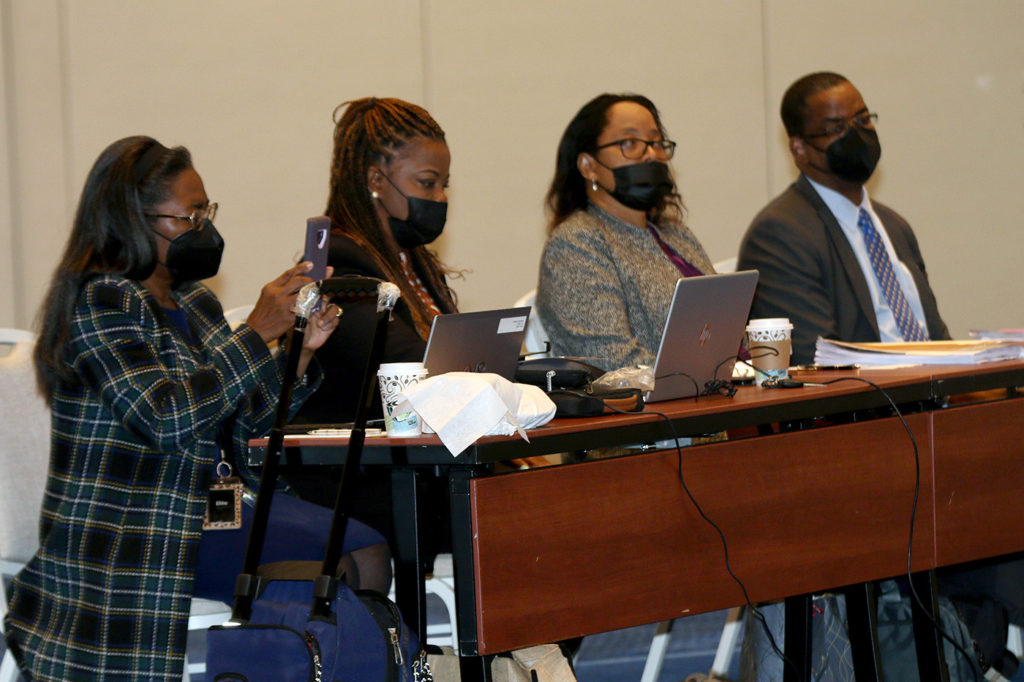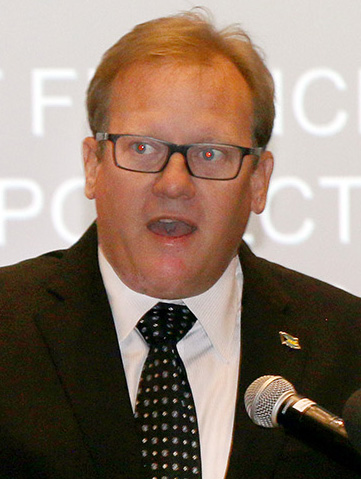

NASSAU, The Bahamas – Non-Profit Organizations were invited to participate in a workshop to assist the government in meeting its goal of becoming fully compliant to Recommendation 8 of the Financial Action Task Force’s Risk Assessment Criteria in relation to Non-Profit Organizations. The country’s rating as it relates to Non-Profit Organizations is currently ‘Partially Compliant’ since the last assessment in 2021. A two-day workshop was conducted by the Office of the Attorney General and Ministry of Legal Affairs at Baha Mar April 5-6, 2022 led by Attorney General and Minister of Legal Affairs, the Hon. Ryan Pinder.
Among the participants were church leaders, controllers and presidents of charitable organizations and other stakeholders. Also in attendance was the Minister of State in the Office of the Attorney General and Ministry of Legal Affairs, the Hon. Jomo Campbell. Moderators for the event included Dr. Cassandra Nottage, National Identified Risk Co-ordinator and Tiffany Moss, Senior Counsel/Chief Compliance Officer at the Office of the Attorney General.
Minister Pinder said that the NPO Risk Assessment Training and Workshop is a very important and necessary exercise, given the important role that the sector plays in the country’s economy.
“As most of you would know, The Bahamas is a founding member of the Caribbean Financial Action Task Force (CFATF) , the regional Financial Action Task Force (FATF) body. In 2015, The Bahamas underwent an assessment of its implementation of the FATF 40 Recommendations. Of these, Recommendation 8, which deals with non-profit organizations, was evaluated as “Partly Compliant” by examiners. A partially compliant rating essentially means that The Bahamas has not fully implemented the requirements of Recommendation 8, and there are deficiencies within its legislative framework.”
The objective of Recommendation 8 is to ensure that NPOs are not misused by terrorist organizations:
- To pose as legitimate entities.
- To exploit legitimate entities as conduits for terrorist financing, including for the purpose of escaping asset freezing measures.
- To conceal or obscure the clandestine diversion of funds intended for legitimate purposes, but diverted for terrorist purposes.
Mr. Pinder said that currently, there are approximately 1,047 NPOs registered in the country. He explained that the Compliance Unit has completed the process of a preliminary assessment of the sector by conducting a desktop review to enable the risk profiling of each individual NPO.
The team, he said, has employed risk rating criteria, which when coupled with the detailed analysis of information obtained from questionnaires, and interviews, will allow an identification and comprehensive assessment of the types of NPOs that are likely to be at risk of terrorist financing abuse.
“The results of the risk assessment exercise will inform a risk based or, in other words ‘targeted’ supervision and monitoring of the NPO sector in The Bahamas,” he said.
“I am sure it will bring much comfort to many of you if the outcome of this risk assessment demonstrates that you are at little to no risk for terrorist financing abuse. This will, no doubt, place you in a low risk category with little supervision and monitoring. If the outcome, however, if there are risks to terrorist financing abuse, and corresponding vulnerabilities due to the nature of your activities and engagement with international elements, then by all means, enhanced monitoring and supervision would be warranted.”
He noted the vital role NPOs play in the local economy, but said they also play a role in the global economy. “Your efforts complement government activities in providing essential services as well as comfort and in many cases, spiritual guidance and hope to those in need, “he said. “NPOs have been a critical partner in providing much needed assistance with disaster relief efforts in The Bahamas and throughout the world. We have seen this first hand with our own experiences with Hurricane Dorian in 2019. Our NPOs were on the ground providing support to thousands of Bahamians; along with many of our churches, which were involved. These efforts are commendable.”
He said, however, that despite legitimate efforts, the events of September 11 coupled with the ongoing international campaign against terrorist financing have demonstrated that terrorists and terrorist organizations exploit the NPO sector to raise and move funds, provide logistical support, encourage terrorist recruitment or otherwise support terrorist organizations and operations. This misuse, he emphasized, undermines donor confidence and compromises the integrity of NPOs.
The Minister explained that in May 2021, The Bahamas applied to the CFATF for a re-rating of FATF Recommendations, which were rated as partially compliant and two recommendations were revised since the Bahamas’ Mutual Evaluation. During The CFATF Plenary in December 2021, The Bahamas received nine upgrades, one downgrade and two ratings were maintained. Recommendation 15 was downgraded from Largely Compliant and Recommendation 8 maintained a rating of Partially Compliant.
“The completion of the risk assessment, with your input through questionnaires and interviews, will enable The Bahamas to further comply with Recommendation 8. In May 2022, next month, The Bahamas will make an application for an upgrade from “partially compliant” to “largely compliant” or better yet “fully compliant.”
During her overview of The FATF Recommendation 8, Tiffany Moss pointed out that several criteria increased the risk of NPOs as it relates to terrorist finance abuse, including those with annual turnovers of $75,000 or higher and cross-border movement of cash (such as those with parent companies or affiliates in another jurisdiction), among other risk levels.







